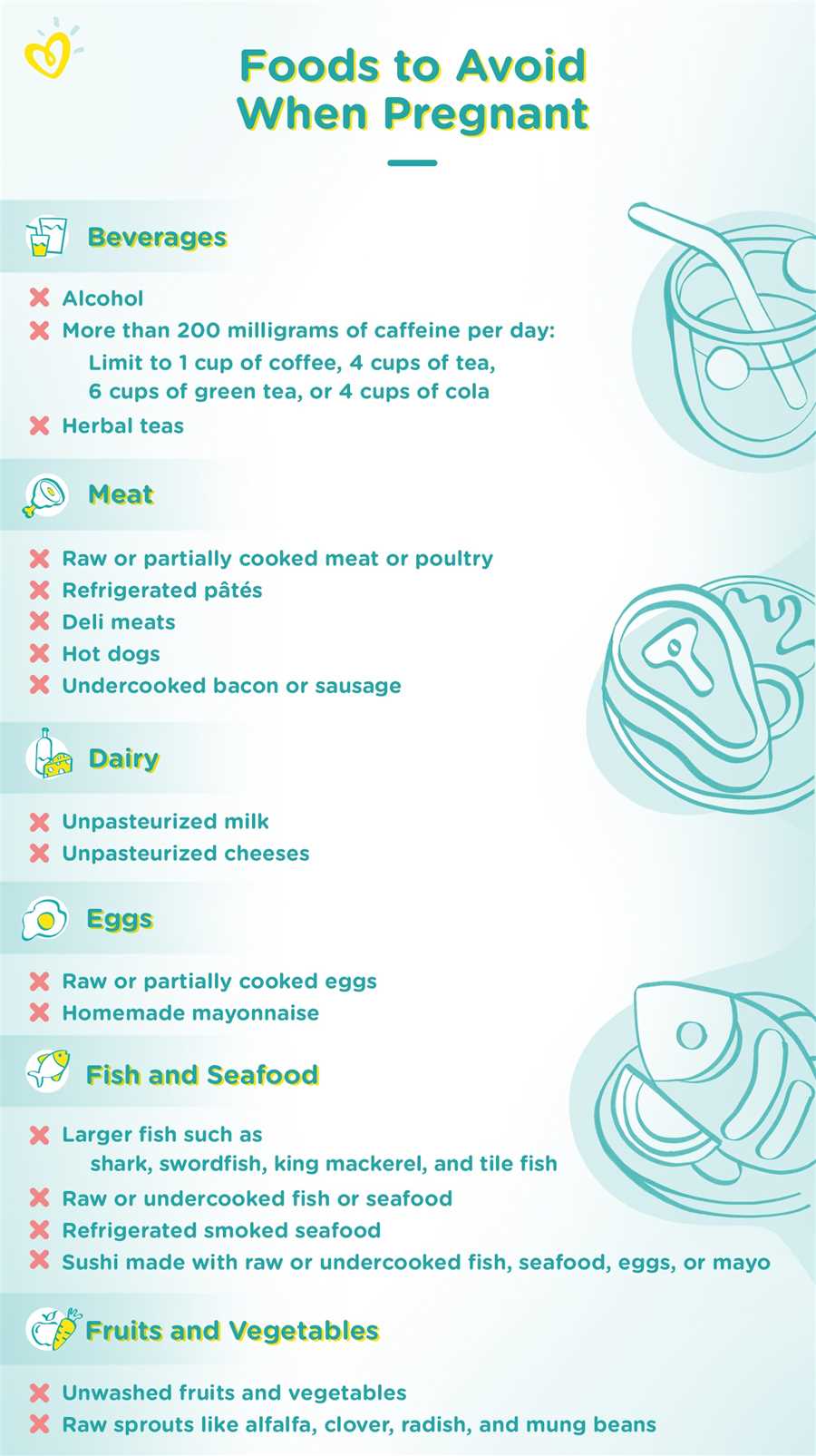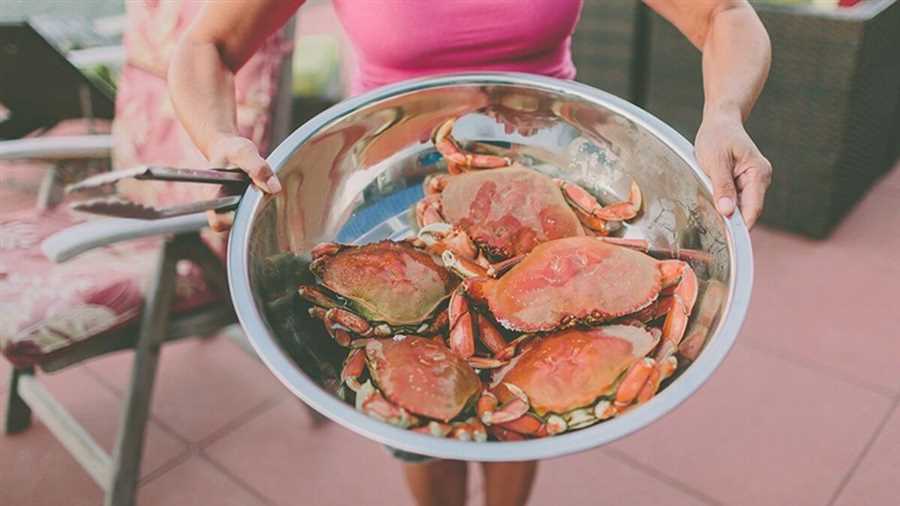


Crab is a type of seafood that many people enjoy, but if you’re pregnant, you may be wondering if it’s safe to eat. Pregnancy is a time when you need to pay extra attention to what you consume, as certain foods can pose a risk to your health and the health of your baby.
When it comes to eating crab during pregnancy, the answer is yes, you can eat cooked crab. However, it’s important to take some precautions to ensure that the crab is safe to consume. It’s generally recommended to avoid raw seafood during pregnancy due to the risk of foodborne illnesses.
Crab is a good source of protein, vitamins, and minerals, which are all important for a healthy pregnancy. It’s low in fat and calories, making it a nutritious choice for expectant mothers. However, it’s important to note that crab, like other seafood, can contain mercury.
To reduce your exposure to mercury, it’s best to limit your consumption of crab and other seafood during pregnancy. The NHS advises pregnant women to eat no more than two portions of seafood per week, with each portion being around 140g (5oz). It’s also recommended to choose a variety of seafood, including both oily fish and white fish.
When buying crab, make sure it’s fresh and properly cooked. Look for reputable sources and check if the crab meat is heated to an internal temperature of at least 145°F (63°C). This will help kill any bacteria or parasites that may be present. It’s also a good idea to avoid eating any crab that has a strong, fishy smell or an off-putting texture.
Remember to always consult with your healthcare provider or a registered dietitian before making any changes to your diet during pregnancy.
Is It Safe to Eat Cooked Crab When Pregnant?
Pregnancy is a time when women need to be cautious about their diet and ensure they are consuming safe and healthy foods. Seafood, including crab, can be a great source of essential nutrients such as protein, omega-3 fatty acids, and vitamins. However, certain types of seafood can potentially be harmful to both the mother and the baby due to potential contamination with mercury or bacteria.
Benefits of Eating Crab During Pregnancy

Eating cooked crab in moderation can offer several benefits to pregnant women. It is a rich source of protein, which is essential for the growth and development of the baby. Crab also contains omega-3 fatty acids, which promote brain and eye development in the baby. Additionally, it is high in vitamins such as vitamin B12, which is important for the nervous system and overall health.
Risks of Eating Crab During Pregnancy
While cooked crab can be a safe and nutritious choice during pregnancy, there are certain risks to be aware of. Crab meat can potentially be contaminated with listeria, a bacteria that can cause food poisoning. It is important to ensure that the crab is properly cooked to kill any harmful bacteria. Mercury contamination is another concern, especially in certain types of crab such as king crab or snow crab. High levels of mercury can be harmful to the baby’s developing nervous system.
To minimize the risks associated with eating crab during pregnancy, it is recommended to follow these guidelines:
- Choose cooked crab over raw crab, as cooking kills bacteria and parasites.
- Ensure that crab meat is properly cooked, reaching an internal temperature of at least 145°F (63°C).
- Avoid consuming large amounts of crab or other seafood high in mercury.
- Consult with your healthcare provider to determine the types and amounts of seafood that are safe for you during pregnancy.
Overall, cooked crab can be a safe and healthy choice during pregnancy when consumed in moderation and with proper precautions. It is always best to consult with your healthcare provider to ensure you are making the best choices for your pregnancy and the health of your baby.
Nutritional Benefits of Cooked Crab
Crab is a delicious seafood option that can be enjoyed during pregnancy, as long as it is fully cooked and consumed in moderation. Here are some of the nutritional benefits of cooked crab:
1. High in Protein
Cooked crab is an excellent source of high-quality protein, making it a nutritious choice for pregnant women. Protein is essential for the growth and development of the baby, as well as for the maintenance and repair of tissues in the mother’s body.
2. Rich in Omega-3 Fatty Acids
Cooked crab is a good source of omega-3 fatty acids, particularly EPA and DHA. These essential fats are vital for the development of the baby’s brain and eyes. They also help reduce the risk of preterm delivery and promote overall maternal health.
Note: Pregnant women should limit their consumption of certain types of crab due to potential mercury contamination. It is best to avoid king crab, snow crab, and blue crab, and choose safer options like Dungeness crab or stone crab.
When enjoying cooked crab during pregnancy, it is important to ensure that it is fully cooked to kill any harmful bacteria or parasites. It is best to buy crab from reputable sources and cook it thoroughly until it reaches an internal temperature of 145°F (63°C).
In conclusion, cooked crab can be a valuable addition to a pregnant woman’s diet, providing important nutrients like protein and omega-3 fatty acids. However, it is crucial to consume it in moderation and follow proper cooking guidelines to ensure both the mother and baby’s safety.
Potential Risks of Eating Cooked Crab When Pregnant
Eating cooked crab during pregnancy may pose some risks to the health of both the mother and the developing baby. Although crab is a good source of protein and essential nutrients, certain precautions should be taken to ensure a safe and healthy pregnancy.
1. Seafood consumption: Crab, like other seafood, may contain high levels of mercury. Mercury is a toxic substance that can harm the developing nervous system of the baby. Pregnant women should limit their intake of high-mercury seafood, including crab, to prevent any potential harm.
2. Allergies: Some people may be allergic to shellfish, including crab. Allergic reactions can range from mild to severe, and in extreme cases, may lead to anaphylaxis, which can be life-threatening. If a pregnant woman has a known allergy to shellfish, it is best to avoid eating cooked crab to prevent any allergic reactions.
3. Foodborne illnesses: There is a risk of contracting foodborne illnesses from improperly cooked or contaminated crab. Pregnant women are more susceptible to infections due to changes in their immune system. It is important to ensure that crab is thoroughly cooked to kill any harmful bacteria and viruses that may be present.
4. Precautions: To reduce the risk of any potential harm, it is recommended to follow these precautions when eating cooked crab during pregnancy:
- Choose crab from reputable sources and ensure it is fresh.
- Thoroughly cook crab until it reaches an internal temperature of 145°F (63°C).
- Avoid eating raw or undercooked crab, as it may contain bacteria or parasites.
- Do not consume large amounts of crab or other seafood high in mercury frequently.
- If experiencing any symptoms of an allergic reaction after consuming crab, seek medical attention immediately.
It is always best to consult with a healthcare provider or a registered dietitian for personalized advice regarding the consumption of cooked crab and other seafood during pregnancy. They can provide appropriate recommendations based on individual health and dietary needs.
Mercury Contamination in Cooked Crab

Crab is a popular seafood choice for many, including pregnant women. However, it is important to be aware of the risks associated with consuming crab while pregnant. One of the main concerns is mercury contamination.
Mercury in Crab
Mercury is a naturally occurring element that can be found in the environment, including bodies of water where crab lives. It enters the water through various processes, such as industrial pollution and volcanic activity. Mercury transforms into methylmercury, a highly toxic form, when it interacts with bacteria in water bodies.
As crab is a bottom-dwelling creature, it tends to accumulate mercury from the sediments it lives in and the organisms it feeds on. As a result, larger crab species that have a longer lifespan, such as Alaskan king crab and Dungeness crab, may contain higher levels of mercury compared to smaller species.
When crab is cooked, it does not eliminate the mercury contamination entirely. Some mercury can still be present in the flesh and fat of the crab, although the levels are generally reduced.
Risks for Pregnant Women
Pregnant women are often advised to limit their intake of seafood due to mercury contamination. High levels of mercury can be harmful to the developing nervous system of the fetus. Excessive exposure to mercury during pregnancy has been linked to developmental delays, cognitive impairments, and even motor function problems in children.
While it is generally safe for pregnant women to consume crab in moderate amounts, it is recommended to choose smaller species and limit consumption to no more than 2-3 servings per week. This helps to minimize the potential risks associated with mercury contamination.
It is also important for pregnant women to ensure that the crab they consume is cooked thoroughly. Cooking crab properly helps to reduce the risk of foodborne illnesses, which can also be harmful during pregnancy.
In conclusion, while cooked crab can be enjoyed during pregnancy, it’s essential to be mindful of the potential mercury contamination. Pregnant women should choose smaller species, limit their intake, and ensure that the crab is cooked thoroughly to minimize any risks.
Questions and answers
Is it safe to eat cooked crab during pregnancy?
Yes, it is generally safe to eat cooked crab during pregnancy. However, pregnant women should avoid eating raw or undercooked crab due to the risk of bacterial or parasitic infections.
What are the risks of eating raw crab while pregnant?
Eating raw crab while pregnant can put you at risk of foodborne illnesses such as salmonella or listeria infection. These infections can be harmful to both the mother and the baby.
How should crab be cooked to make it safe for pregnant women?
To make crab safe for pregnant women, it should be cooked thoroughly until it reaches an internal temperature of at least 145°F (63°C). This kills any harmful bacteria that may be present.
Are there any benefits to eating cooked crab during pregnancy?
Yes, cooked crab is a good source of protein and essential nutrients like omega-3 fatty acids, which are important for the development of the baby’s brain and eyes. It can be a healthy addition to a pregnant woman’s diet when consumed in moderation.
Can you eat cooked crab when pregnant?
Yes, you can safely eat cooked crab while pregnant. However, it is important to ensure that the crab is fresh, fully cooked, and sourced from a reputable supplier to reduce the risk of foodborne illnesses.






